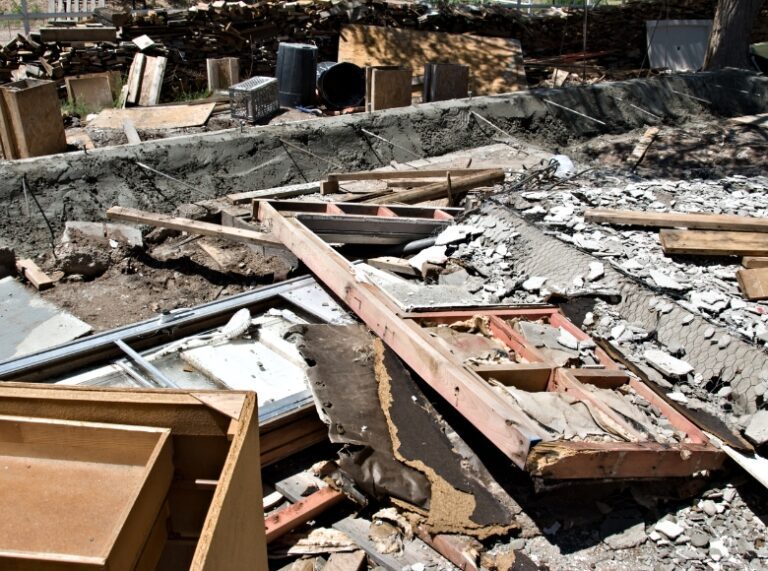When disaster strikes and damages property, emotions run high. It is natural to expect help from the insurance company in such moments. After all, premiums have been paid for years in the hope that coverage would be there when needed most. The first person to appear after filing a claim is usually the insurance company’s adjuster. This visit often feels like support arriving right on time. However, appearances can be misleading.
Insurance company adjusters are not neutral parties. They are hired, trained, and paid by the carrier. Their role is not to maximize settlements for policyholders but to minimize the cost to the insurer. This simple fact shapes every step they take, from how they evaluate property damage to how they calculate the payout.
Understanding the difference between an insurance company adjuster and a public adjuster is essential for protecting financial recovery after a loss. One represents the carrier’s interests. The other represents the policyholder’s interests. Knowing this distinction can mean the difference between a settlement that falls short and one that truly reflects the value of the damage.
The Role of Insurance Company Adjusters
Insurance company adjusters often introduce themselves as professionals there to “help with the claim.” In reality, their responsibility lies with the carrier. Their task is to investigate losses, interpret policy language in ways favorable to the company, and propose settlement amounts that limit payouts.
This approach can take many forms:
- Narrowly defining what qualifies as covered damage
- Applying high depreciation to reduce the value of older property
- Excluding costs such as code upgrades, temporary facilities, or lost business income
- Using carrier-approved contractors who provide lower repair estimates
Every decision is tied to reducing the insurer’s financial liability. This does not mean insurance adjusters are dishonest, it means they serve the company’s bottom line, not the policyholder’s needs.
The Role of Public Adjusters
Public adjusters serve the opposite role. Their sole duty is to the policyholder. They evaluate losses independently, interpret policy language in ways that unlock coverage, and prepare documentation that strengthens the claim. Unlike company adjusters, they work on contingency, receiving payment only when the settlement improves.
The difference is stark:
- Insurance adjusters = protect the insurance company
- Public adjusters = protect the policyholder
Public adjusters are not bound by the carrier’s interests. They gather evidence thoroughly, document every loss detail, and negotiate aggressively for fair value. This advocacy can often double or triple the initial offers made by company adjusters.
Why the Difference Matters in Large Loss Claims
In small claims, the difference between company and public adjusters may not seem dramatic. But in large commercial or industrial losses, the gap can be measured in millions. Businesses facing major disruptions cannot afford undervalued settlements. Every dollar counts for rebuilding facilities, replacing equipment, and restoring operations.
Large claims also involve complex coverage issues such as:
- Business interruption and lost revenue
- Extra expenses required to continue operations
- Demolition, debris removal, and code compliance
- High-value equipment with unique depreciation calculations
Insurance adjusters are trained to downplay or exclude these costs. Public adjusters, when involved from the beginning, ensure such losses are fully documented and properly included in the claim.
Tactics to Watch Out for from Insurance Adjusters
Many policyholders mistakenly assume the company adjuster is a partner in the process. Recognizing common tactics can help reveal the truth:
- Quick settlement offers – Carriers often offer fast, low settlements before the full scope of damage is clear.
- Selective documentation – Company adjusters may ignore or downplay hidden damage such as water intrusion behind walls or smoke damage in ventilation systems.
- Depreciation manipulation – Heavy depreciation is applied to property and equipment to reduce payouts.
- Policy language interpretation – Exclusions or limits are emphasized, while favorable clauses for policyholders are ignored.
- Stalling tactics – Requests for additional documents or delays in scheduling inspections stretch out the process, increasing pressure to accept less.
Each of these tactics serves the insurer’s interest. Without an advocate to counter them, policyholders often accept far less than they are entitled to receive.
The Value of Independent Representation
An independent public adjuster changes the dynamic entirely. By preparing comprehensive inventories, securing expert valuations, and presenting claims supported by evidence, public adjusters force insurers to engage fairly. They bring balance to a process otherwise dominated by the company’s representatives.
The result is more accurate valuations, quicker resolutions, and settlements that reflect the true cost of recovery. Independent representation is a necessity in large claims.
Conclusion
It is tempting to see the insurance company’s adjuster as an ally during a time of loss. But the reality is different. That adjuster’s first loyalty is to the insurer, not to the policyholder. Their work is designed to control claim costs, not to maximize recovery.
Public adjusters provide the counterbalance. They stand entirely on the side of the policyholder, ensuring losses are documented correctly, policy language is interpreted fairly, and settlements reflect real costs. In the aftermath of large losses, this difference is not minor; it determines whether recovery is full or partial, fair or inadequate.
Recognizing that the insurance adjuster is not on the policyholder’s side is the first step toward protecting financial recovery. The second step is choosing independent representation that places the policyholder’s needs at the center of the process.
Continental Adjusters – Protecting Policyholder Interests
In large loss claims, Continental Adjusters specializes in representing policyholders with skill, precision, and commitment. The firm provides services that directly address the challenges created by insurance company adjusters:
- Comprehensive documentation – Every damaged asset, structural detail, and business impact is identified and recorded.
- Independent valuations – Expert appraisers and forensic accountants determine accurate costs, leaving no room for underestimation.
- Policy interpretation – Every clause is reviewed to expand coverage and counter restrictive interpretations.
- Strategic negotiation – Settlements are pursued with evidence-backed arguments, ensuring compensation reflects true loss.
- Large-scale expertise – Complex commercial and industrial claims are managed with proven systems developed across decades of work in the field.
Continental Adjusters does not work for insurers. Our role is dedicated solely to protecting the financial recovery of policyholders facing major property damage.
Contact Continental Adjusters
When property loss threatens operations and recovery, independent advocacy makes the difference between an inadequate payout and a full, fair settlement. Continental Adjusters provides the representation needed to stand against company-hired adjusters and secure rightful compensation.
Contact Continental Adjusters today to learn how dedicated representation can protect large loss claims from undervaluation and delay.
FAQs
1. What is the difference between an insurance adjuster and a public adjuster?
An insurance adjuster works for the insurance company and aims to protect the insurer’s interests when handling claims. A public adjuster works independently for the property owner, ensuring the claim is fully documented and the settlement is fair.
2. When should I hire a public adjuster for a commercial property claim?
Hiring a public adjuster is recommended when the claim is complex, involves significant damage, or when there is uncertainty about coverage. They help accurately assess losses and negotiate with the insurance company for maximum compensation.
3. Can a public adjuster help if my claim has already been denied?
Yes, a public adjuster can review the denied claim, identify potential errors, and gather additional documentation. They can assist in filing an appeal or reopening the claim to increase the chance of approval.
4. Are public adjusters worth it for large loss claims?
Public adjusters are especially valuable for large loss claims because these claims often involve complicated policies and extensive documentation. Their expertise can result in higher settlements that outweigh their fees.



